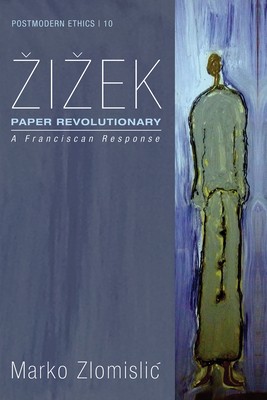
- We will send in 10–14 business days.
- Author: Marko Zlomislic
- Publisher: Pickwick Publications
- ISBN-10: 1498283497
- ISBN-13: 9781498283496
- Format: 15.2 x 22.6 x 1 cm, softcover
- Language: English
- SAVE -10% with code: EXTRA
Reviews
Description
In this new book, Marko Zlomislic argues that Slavoj Zizek's work does not contain any sort of radical emancipatory project, especially as it passes through the ideology of communism and Lacanian psychoanalysis. The evidence for the failure of communism is vast and includes the more than six hundred mass graves recently located in Zizek's homeland of Slovenia. Zlomislic demonstrates that the way out of the capitalist dilemma is not a repetition of communism but a return to the late medieval notion of haecceity or ""individual thisness"" that was rejected by modernity. Haecceity, or the indescribable and indefinite here and now of the person, shows that the late medieval Franciscans were already ""postmodernists."" It is no wonder that the totalitarianism of the modernist Hegel is embraced by thinkers such as Zizek, Badiou, Hardt, Negri, and Laclau and was already rejected by Leibnitz, Kierkegaard, Nietzsche, Levinas, Deleuze, and Derrida. This important book shows that Zizek's work must be rejected because it does not uphold the dignity, worth, and uniqueness of the person. ""Marko Zlomislic engages Zizek very forcefully in this work from a Fransciscan-Derridean point of view and from personal and family experience in the troubled Balkans, exposing especially Zizek's nostalgia for totalitarian dystopias."" --Jean-Francois Methot, professor, faculty of Philosophy, Dominican University College Marko Zlomislic is professor of philosophy at Conestoga College in Kitchener, Ontario. He is the author of Jacques Derrida's Aporetic Ethics (2004).
EXTRA 10 % discount with code: EXTRA
The promotion ends in 16d.02:30:47
The discount code is valid when purchasing from 10 €. Discounts do not stack.
- Author: Marko Zlomislic
- Publisher: Pickwick Publications
- ISBN-10: 1498283497
- ISBN-13: 9781498283496
- Format: 15.2 x 22.6 x 1 cm, softcover
- Language: English English
In this new book, Marko Zlomislic argues that Slavoj Zizek's work does not contain any sort of radical emancipatory project, especially as it passes through the ideology of communism and Lacanian psychoanalysis. The evidence for the failure of communism is vast and includes the more than six hundred mass graves recently located in Zizek's homeland of Slovenia. Zlomislic demonstrates that the way out of the capitalist dilemma is not a repetition of communism but a return to the late medieval notion of haecceity or ""individual thisness"" that was rejected by modernity. Haecceity, or the indescribable and indefinite here and now of the person, shows that the late medieval Franciscans were already ""postmodernists."" It is no wonder that the totalitarianism of the modernist Hegel is embraced by thinkers such as Zizek, Badiou, Hardt, Negri, and Laclau and was already rejected by Leibnitz, Kierkegaard, Nietzsche, Levinas, Deleuze, and Derrida. This important book shows that Zizek's work must be rejected because it does not uphold the dignity, worth, and uniqueness of the person. ""Marko Zlomislic engages Zizek very forcefully in this work from a Fransciscan-Derridean point of view and from personal and family experience in the troubled Balkans, exposing especially Zizek's nostalgia for totalitarian dystopias."" --Jean-Francois Methot, professor, faculty of Philosophy, Dominican University College Marko Zlomislic is professor of philosophy at Conestoga College in Kitchener, Ontario. He is the author of Jacques Derrida's Aporetic Ethics (2004).


Reviews